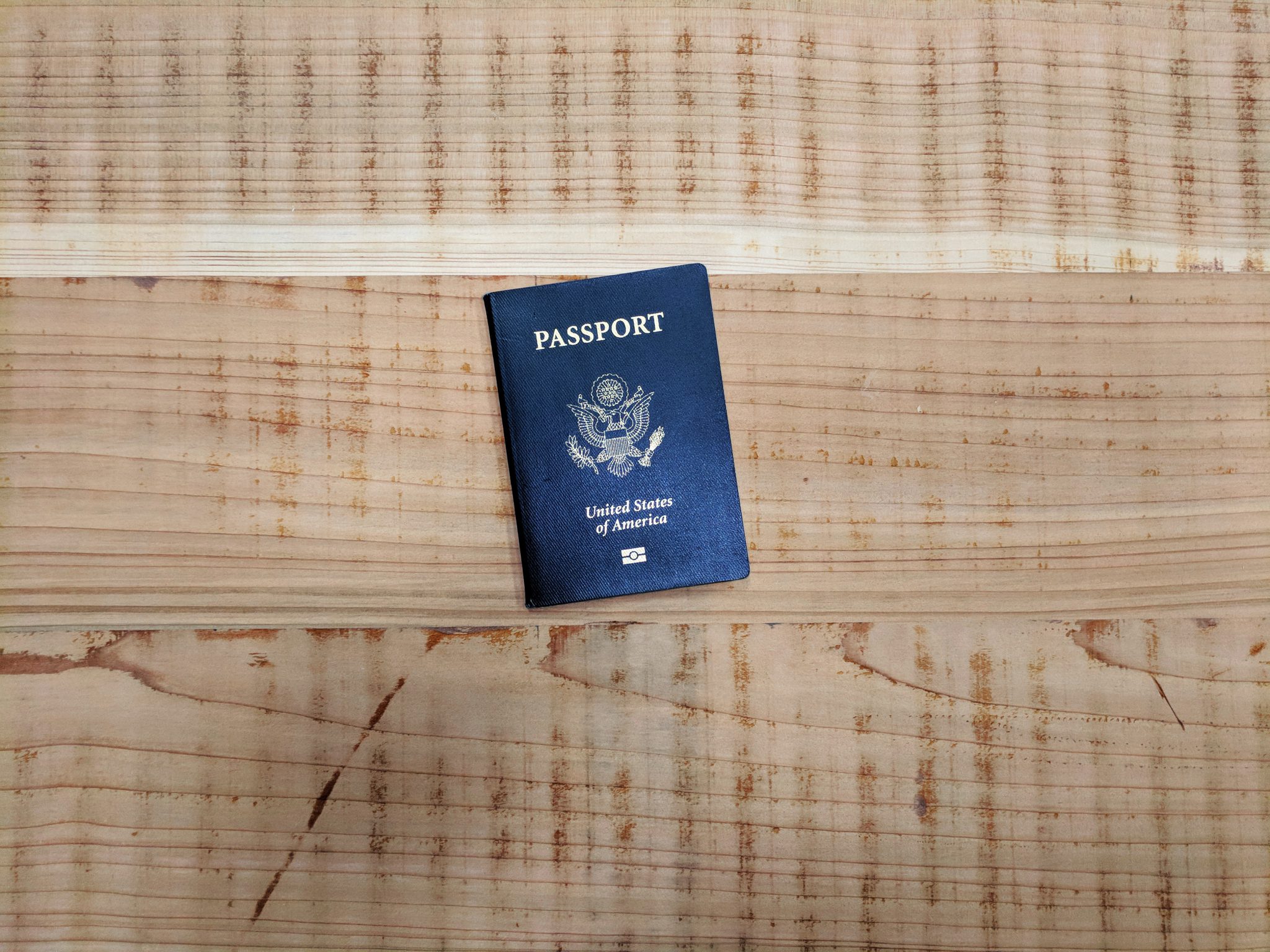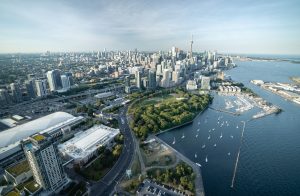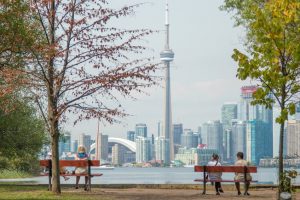Introduction
You might have stumbled upon this article and are a U.S. citizen interested in buying property in Canada and the short answer is yes, U.S. citizens can buy property in Canada. In fact, Canada welcomes buyers from all over the globe and there is no restriction on the amount or kind of real estate you can buy if you are not considered to be a permanent Canadian resident. Any Canadian citizen spending more than 6 months per year outside of Canada is considered to be a non-resident and will follow these rules as well.
As a non-resident you will need to follow certain rules, pay higher taxes than a non-Canadian permanent resident, and will need to put more money down than you usually would if you are financing the purchase of your property with a loan from a Canadian bank. But beyond these tax considerations which a competent Canadian accountant can help you figure out the tax implications and some paperwork. It should not be too challenging to do this on the Canadian end. However, on the U.S. end, there will be some tax considerations that you should discuss with a qualified accountant who has experience working with U.S. citizens who own property abroad and maybe an attorney who has experience with advising and working with U.S. citizens who own property abroad since there are two certainties in life, which are death and taxes.

While this article is meant to answer questions about whether or not U.S. citizens and non-Canadian residents are able to buy property in Canada, you should treat this as a jumping-off point in your research into buying property in Canada. If you are serious about buying property in Canada, you should definitely contact a Canadian real estate agent or broker who has experience working with foreigners who can assist and guide you through this process. It might also be worth finding a Canadian real estate attorney if you have any questions related to the legal, financial, and tax implications of owning property in Canada you should consult a Canadian accountant, Canadian lawyer, and a competent financial advisor. A Canadian accountant can also help you once you own property in Canada with filing and paying your Canadian taxes.
Related article: The Ultimate Buyer’s Guide for Buying a House in Toronto
Things non-Canadian citizens interested in buying property in Canada should be keeping in mind
First, buying property sadly will not improve your chances with Canadian immigration since owning property in Canada is not one of the factors that the Canadian immigration authorities take into consideration when they make decisions about immigration and visas. While owning property in Canada certainly will not hurt your chances if you are planning on immigrating to Canada and property ownership will be considered part of your overall net worth, this is a positive. However, owning a home in Canada does not impact the selection process. If you are interested in possibly immigrating to Canada, gaining permanent residency and one-day Canadian citizenship to join our northern neighbours, you should consider checking out the Canadian Government’s Citizenship and Immigration website, where you can learn about the process and figure out your eligibility to immigrate to Canada.
Second, if you are planning on applying for a non-resident mortgage to finance your property purchase in Canada, you will have to put at least 20% of the purchase price as a down payment if you are a U.S. citizen and put at least a 35% down payment for the purchase price if you are not a U.S. citizen that are not gifted funds. It is important to remember that some banks might restrict the number of properties that they are willing to finance for each person. Some banks will only finance the purchase of up to five properties per person.

Third, if you are looking to buy a residential property in the City of Toronto and certain areas in Toronto, that are considered to be a part of the Greater Golden Horseshoe Region (GGH) as a non-Canadian permanent resident or citizen or foreign entities (foreign corporations), trusts, and taxable trustees you will need to pay the Non-Resident Speculation Tax (NRST). The Non-Resident Speculation Tax (NRST), which 15% of the value of the consideration for the residential property. The NRST went into effect for all real estate purchases in the Greater Golden Horseshoe Region (GGH) beginning on 21 April 2017. The NRST is in addition to Ontario’s Land Transfer Tax (LTT).
Related article: 5 Common Mistakes to Avoid for a First Time Home Buyer in Toronto
The NRST applies for the value of the consideration for a residential property. This means that if the land being transferred includes residential property and another type of property such as agricultural, commercial or industrial property, the NRST will only apply for the portion of the value of the consideration that is attributable to the residential property. For example, if you are buying a house on commercial land and the house is valued at $500,000 and the property as a whole is valued at $1,500,000, you will only be paying the NRST for the $500,000 that is the value for the house.
In other words, you will be responsible for paying the NRST when this applies to the transfer of land which contains at least one and not more than single-family residences. Some of the examples of land that contain one single-family residence include land with a detached house, a semi-detached house, a townhouse or a condo. When there is a situation when a foreign entity is purchasing multiple condo units, each unit would be considered land containing one single-family residence. Land that contains more than one single-family residence includes land containing duplexes, triplexes, fourplexes, fiveplexes, and sixplexes.
However, you are not responsible for paying the NRST since it does not apply for other types of land including land which contains multi-residential rental apartment buildings with more than six units, agricultural land, commercial land, or industrial land.
The Greater Golden Horseshoe in Ontario includes the following geographic areas:
- City of Barrie
- County of Brant
- City of Brantford
- County of Dufferin
- Regional Municipality of Durham
- City of Guelph
- Haldimand County
- Regional Municipality of Halton
- City of Hamilton
- City of Kawartha Lakes
- Regional Municipality of Niagara
- County of Northumberland
- City of Orillia
- Regional Municipality of Peel
- City of Peterborough
- County of Peterborough
- County of Simcoe
- City of Toronto
- Regional Municipality of Waterloo
- County of Wellington, and
- Regional Municipality of York.
Related article: How to Find the Best Places to Live in Toronto?
Closing costs you can expect to pay if you are buying a home in Toronto
These are the closing costs you should be prepared to pay when buying a home in Toronto and the Greater Golden Horseshoe Region in Ontario. Please note that what you might end up paying with taxes and other costs might differ on where you are buying property, your unique circumstances, etc.

Costs you will be responsible for paying before closing when buying property in Toronto
- Deposit: This is usually 5% of the purchase price when buying property in Toronto, this is meant to be paid within 24 hours of the seller accepting your offer)
- Property Appraisal: This usually costs somewhere between $400-$700 and this often paid by the buyer’s lender if you are financing this purchase
- Home Inspection: This usually costs somewhere between $400 to $700 and this is paid to the home inspector or the home inspection company.
Costs you will be responsible for paying upon closing on your property in Toronto
- Balance of the Purchase Price: You will be paying the balance of the purchase price, whatever is that is less than your initial deposit. Typically, the majority of the balance for the purchase price will be coming from the bank and this will become your mortgage.
- Legal Fees: The amount you will be paying in legal fees varies depending on the purchase price for your property and attorney(s) you are working with this could be $2,000 for a $500,000.
- Title Insurance: This is sometimes included in your legal fees and ranges from $300 to $500
- Mortgage Broker Commission: If applicable this is usually paid by the lender
- Property Survey (if required): This might run you anywhere from $1,200 to $2,200
- Non-Resident Speculation Tax (NRST): 15% of the purchase price for the property
- Ontario Land Transfer Tax (LTT): The amount you will end up paying will depend on the purchase price, here is a link to the Government of Ontario’s website where you can learn more about this.
- Toronto Municipal Land Transfer Tax (MLTT): The amount you will end up paying will depend on the property’s purchase price. Here is a link to the City of Toronto’s website where you can find an MLTT calculator.
- Property Tax Adjustment: This serves to reimburse the seller(s) for any property taxes that they may have paid beyond the closing date.
- Harmonized Sales Tax (Only for new construction): This tax usually only applies when you are buying new construction condos or houses, it usually does not apply when you are buying an existing home.
- Tarion Warranty Fees (Only for new construction): This warranty fee is for new construction condos and houses when bought from the builder or developer, here is a link that will help you to estimate your Tarion Fees.
- Provincial Sales Tax: You are only responsible for paying this sales tax on chattels purchased directly from the vendor. The amount you will end up paying for this will vary.
- Adjustments for Utilities/Condo Fees/etc.: You will be reimbursing the seller for any prepaid utilities, condo fees, etc.
Related article: How to invest wisely in Toronto’s real estate?
Special considerations for U.S. citizens buying property in Canada

Tax considerations for U.S. citizens with property abroad
If you are purchasing a home in Canada or outside of the United States to use as your primary residence you will be entitled to receive the same U.S. tax benefits as any other homeowner in the U.S. This means that you will be able to deduct the interest on your mortgage, your property taxes, and some other items on your U.S. tax filing documents. However, you must have a U.S. source of income or non-excluded foreign earned income which you can use for these deductions.
If all of your income qualifies and is excluded from U.S. taxes under the Foreign-Earned Income Exclusion (FEIE) and the Foreign Housing Exclusion you will have no income against which you can take this deduction. In order to be able to benefit from this tax deduction, your income must come from a U.S. source or income that is not excluded as part of the Foreign Earned Income Exclusion (FEIE). Also, this applies when you are making contributions to an IRA (Individual Retirement Account) or a Roth IRA. You need to have non-excluded earned income in order to be able to make IRA contributions even if are not taking a tax deduction.
If you decide to sell your primary residence overseas, you will luckily be able to benefit from the same exclusion on the capital gains tax that you would be if you were selling your home in the U.S. Your eligibility to benefit from the exclusion of the Capital Gains Tax is based on the following:
As a U.S. citizen and owner of foreign property that is your primary residence, you will be entitled to exclude the first $250,00 in Capital Gains, if you have used the property as your principal residence during two of the last five year before its sale.
- If both you and your spouse are U.S. citizens who file taxes as being married filing jointly (MFJ) you are both entitled to benefit from this exemption and can exclude up to $500,000 in the Capital Gains tax.
- If your spouse is a co-owner of this property but is not a U.S. citizen or green card holder and you are not filing U.S. taxes as married filing jointly (MFJ), your spouse’s portion of the Capital Gain on the sale of this property will not be subject to U.S. taxes. Your exclusion will be limited to $250,000.
However, it is important that any tax exclusions or benefits you receive under U.S. tax laws do not mean that you are not responsible for paying taxes in your country of residence. You might end up paying taxes or the gains even if you are able to exclude the gains on your U.S. taxes. You could also end up in a situation where you are responsible for paying taxes on the sale of your property in the country you are residing in and the U.S. In this situation, you might be able to claim a foreign tax credit and apply this against your U.S. taxes.
Exchange Rates, Currency Movements, and U.S. Taxes
You should also keep a close eye on currency movements and exchange rates between Canadian Dollars (CAD) and U.S. Dollars (USD). Exchange rates and currency movements are important if you are purchasing and/or selling property abroad. When you are purchasing your home abroad, you will need to calculate your property’s value in USD using the relevant exchange rate on the day you purchase your property. When the time comes to sell your property, you will need to convert the value that your property sold for from CAD to USD using the exchange rate at the time of the sale. While exchange rates and currency movements impact a property’s value and determine the taxes you will pay on it, currency movements also create gains and losses in relation to any foreign mortgages you may have used to finance your purchase of the property.
Using a corporation to purchase and own a property abroad
While this article is geared more towards individuals looking to buy homes in Canada, there are some people who purchase and own a property abroad using a corporation. This may sound odd to some people but it can make sense in certain cases.

In some countries, it is not uncommon for individuals to create corporations so they can purchase and own property while taking advantage of more favourable tax laws for corporations. In this scenario, the U.S. and local tax laws that govern the calculation of capital gains and the distribution of profits if and when the property is sold and the tax laws in this situation are totally different wherever you are located and in the U.S. Depending on the tax laws wherever you are located you might be paying less in taxes or a higher total tax owning a property as a corporation instead of owning a property as an individual. How much you will end up paying in taxes will depend on your specific situation.
As a U.S. citizen or permanent resident, having ownership in a foreign company means that you are required to file additional tax disclosure forms. If you own or control at least 10% or more of the ownership of voting shares, you might need to file a Form 5471: Information Return of U.S. Person with Respect to Certain Foreign Corporations. Also, if the corporate structure is solely created to hold the property, it might be classified by the IRS as a Passive Foreign Investment Corporation (PFIC), which means that you might be on the hook for paying more taxes.
If you are considering purchasing or owning property using a corporate structure or trust you should definitely consult a competent and experienced tax professional who has experience dealing with U.S. tax laws and in whatever country, where you are or will be residing.
Related article: Pros and Cons of Buying Homes in Downtown Toronto
Conclusion
While there might be more things that you will need to take into consideration if you are looking to buy property in Canada as a U.S. citizen than there might be then if you were looking to buy property in Canada, buying property in Canada is a pretty straightforward process. This is made easier if you are a non-resident in Canada (not a Canadian citizen who spends more than 6 months abroad each year) you are not buying property to get a residency visa as many Americans and foreigners do in such places as Colombia, Panama, and other popular Latin American retirement destinations. If you follow the rules, do all of the paperwork correctly in Canada and the United States, and pay all of your taxes, property ownership in Canada should not be a huge hassle, it could incredibly rewarding for you.
Related article: Looking for a deal? Now’s the time!
- The Impact of Interest Rate Cuts on Toronto’s Housing Affordability - April 23, 2025
- Bank of Canada Holds Interest Rate Steady Amid Tariff Uncertainty - April 19, 2025
- The Impact of Interest Rate Cuts on Toronto’s Housing Affordability - April 11, 2025




